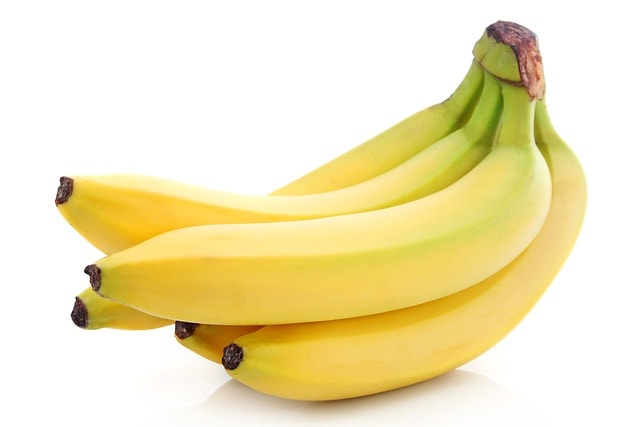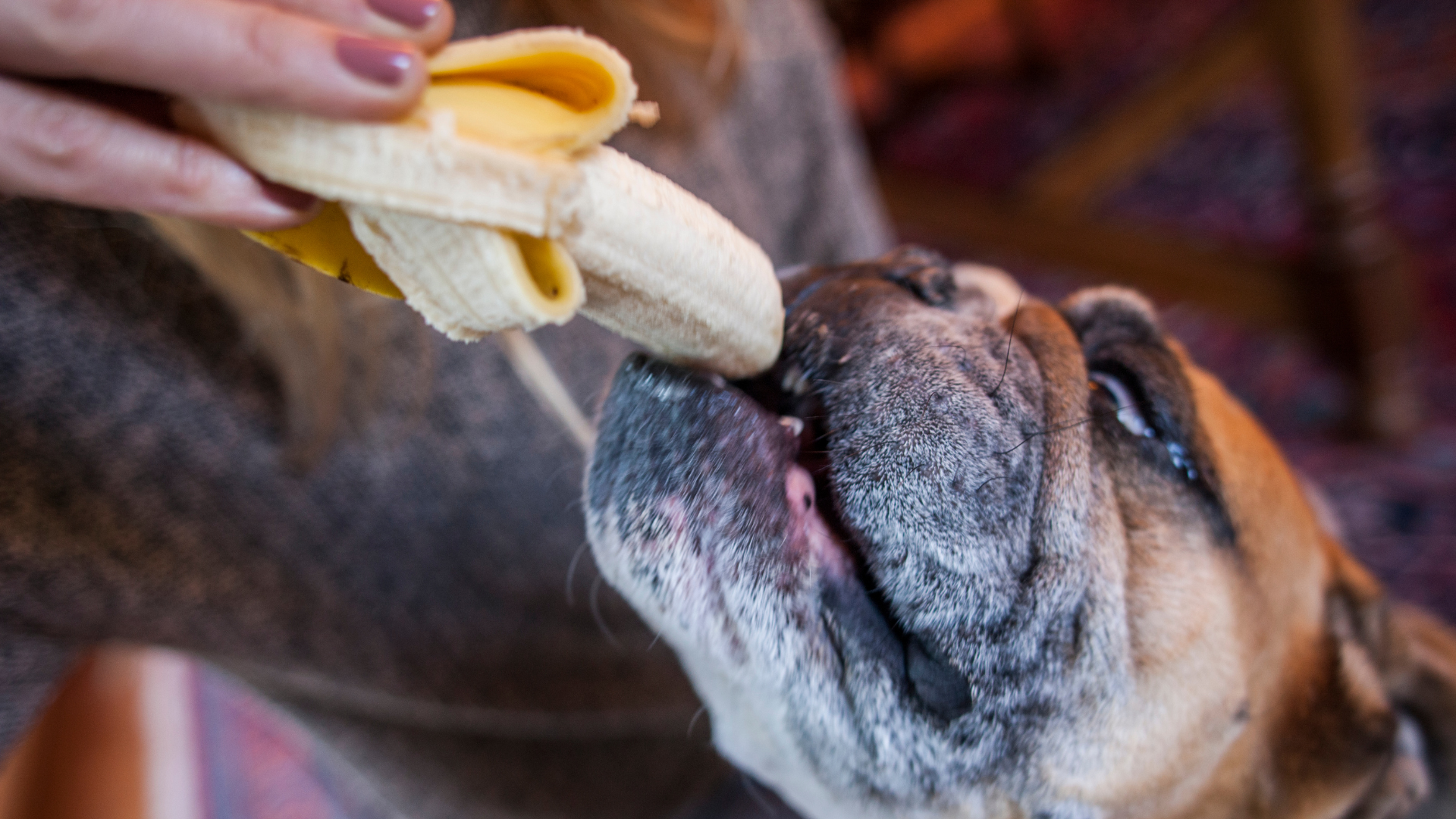Can Dogs Eat Bananas? – Everything You Need to Know
Bananas are not only a popular snack for humans, but the fruit also often arouses great interest in dogs. Perhaps you have already observed your dog sniffing a banana curiously and looking at you with big eyes when you take a bite. But before you offer your four-legged friend a piece, you may be asking yourself the question: Can dogs eat bananas?
In this article, you will learn whether bananas are healthy for your furry friend, what quantities are safe for your dog's diet and what risks you should be aware of.

Are bananas safe for dogs?
Yes, dogs can eat bananas, but in moderation. Bananas contain many nutrients that are also healthy for dogs. These include vitamin C, vitamin B6, magnesium and potassium. Potassium plays an important role in your four-legged friend's muscle function and blood pressure, while vitamin C strengthens the immune system.
But as with everything, the amount makes the difference. While small amounts of bananas are not harmful, excessive consumption of bananas can lead to health problems. The high sugar content is particularly important to note.
What health benefits do bananas offer for your dog’s diet?
Bananas are a real nutritional bomb and some of these nutrients can have a positive effect on your dog's health. Here are some of the most important ingredients:
Potassium: Potassium supports your dog's heart function and muscles. It also helps regulate blood pressure.
Vitamin B6: This vitamin promotes the formation of red blood cells and supports the metabolism.
Dietary fiber: Bananas are high in fiber, which can aid your dog's digestion. They help regulate bowel movements, which can be especially helpful for dogs with mild constipation.
Vitamin C: Even though dogs can produce vitamin C themselves, a small extra portion of this vitamin can support the immune system, especially during stressful or health-related times.
What are the risks of feeding bananas?
Despite their health benefits, you should exercise caution when feeding bananas. Bananas contain a lot of natural sugar. If your dog regularly consumes large amounts of sugar, it can lead to obesity, tooth decay or even diabetes. Digestive problems such as diarrhea can also occur if your dog eats too many bananas.
How much banana is healthy?
The amount is crucial. A small piece of banana as an occasional snack is generally safe. For small dogs, a piece about the size of a coin is enough, while larger dogs can tolerate a little more. As a rule of thumb, bananas should not make up more than 10% of your dog's daily food.
If you are unsure how much banana your dog can tolerate, try a small amount first and see how he reacts. If you notice that your dog has digestive problems after eating bananas, you should reduce the amount or avoid them altogether.
What happens if your dog eats too many bananas?
If your dog eats too many bananas, it can lead to digestive problems. The most common symptoms are diarrhea and bloating. The high sugar content can also lead to weight gain and, in the worst case, diabetes if he is given too many sweet snacks on a regular basis.
If your dog accidentally eats a large amount of banana, keep a close eye on him. If he shows signs of digestive problems, such as vomiting, diarrhea or unusual behavior, you should consult a veterinarian to be on the safe side.
Can all dogs eat bananas?
Not every dog reacts to bananas in the same way. While most dogs tolerate bananas without any problems, there are dogs that are more sensitive to certain foods. You should be particularly careful with dogs with sensitive digestion or known food intolerances.
It's best to test slowly whether your dog tolerates bananas well. Start with a very small amount and observe whether he shows any symptoms such as flatulence, diarrhea or constipation afterwards. If everything goes well, you can occasionally give him a small piece of banana as a snack.
What about unripe and ripe bananas?
Ripe bananas are better for dogs than unripe ones. Unripe bananas contain more starch, which is harder to digest and can cause stomach upset. Ripe bananas are sweeter and softer, which makes them easier to digest and tastes better to your dog. Make sure the banana is ripe, but not overripe.
Can your dog eat banana peel?
Banana peels are not suitable for dogs. They are difficult to digest and can lead to gastrointestinal problems. In the worst case, they can even cause intestinal blockage, as dogs often do not chew the peel well. So make sure that you only give your dog the flesh of the banana and dispose of the peel safely.
Banana as a healthy snack – the perfect reward?
Bananas can be a delicious and healthy treat for your dog, especially if you are looking for a natural alternative to industrial dog treats. A small bite of banana is a nutritious snack that many dogs love. You can also freeze bananas and give them to your dog as a refreshing treat on hot days. Just make sure to serve the banana in small pieces to avoid digestive problems.
When should you avoid bananas?
There are situations in which it is better not to give bananas. If your dog is already overweight, you should be careful. The sugar content in bananas can accelerate weight gain and increase health problems such as joint strain. Dogs that are prone to diabetes should also not be given bananas, as the sugar can cause blood sugar levels to rise quickly.
If your dog is sensitive to fruit or certain foods, you should also avoid bananas or only feed them after consulting your veterinarian.
Conclusion: Can dogs eat bananas? - Yes, but in moderation!
Bananas are a healthy and tasty snack for your dog - as long as they are given in moderation. They provide valuable vitamins and minerals that can be good for him. However, due to their high sugar content, bananas should only be fed occasionally and in small quantities.
Pay attention to how your dog reacts to bananas and adjust the amount accordingly. If your dog tolerates bananas well, you can add them to your dog's diet as an occasional treat.

